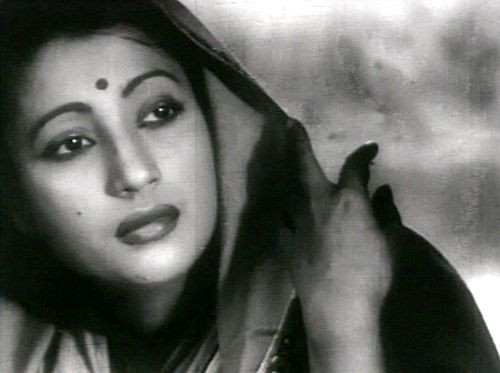Suchitra Sen Dies: Bangladesh Also Mourns Loss Of Iconic Bengali Daughter, Cinematic Legend

The death of legendary Bengali from film actress Suchitra Sen not only sparked widespread sorrow across India, but also in neighboring Bangladesh, where she was born 82 years ago in 1931 (when Bangladesh did not exist and formed part of British-ruled India). She and her family moved to what became Hindu-dominated India in 1947 during the chaos surrounding the partition of British India created the new Muslim-dominated states of West and East Pakistan (which itself later became the state of Bangladesh after an independence war in 1971).
The Indo-Asian News Service reported that Bangladesh Prime Minister Sheikh Hasina expressed her condolences over Sen’s death, saying that all Bengalis had lost an “iconic figure.” “Bengali people have lost a distinctive figure of [the] classical Bengali daughter, wife and caring mother at her death," said Hasina, adding that Sen will always be remembered as an inspiration for making "ameliorative cinema on Bengali literature and culture".
Bangladesh President Abdul Hamid said Sen's death represented the end of an era of Bengali cinema. "Suchitra Sen was also an asset of the country as her native home is in Pabna and she had millions of fans in Bangladesh," he said. "Suchitra Sen will remain an inspiration for making classic cinema on true Bengali culture." The boss of the principal opposition the Bangladesh Nationalist Party (BNP) Khaleda Zia, also lamented Sen's passing. "Suchitra Sen was an ever-shining bright star in the subcontinent's film arena. She will be remembered forever for her acting talent," Zia said.
Sen died in a hospital in Calcutta on Friday morning from heart failure, after she was hospitalized for respiratory infection. Sen, once known as the Bengali “queen of hearts” for her intense performances and exquisite beauty, has long been compared to legendary Swedish actress Greta Garbo for her decision to prematurely retire from the movie business and spend the rest of her life in seclusion. For the past thirty five years, Sen lived in obscurity in an apartment in South Calcutta and completely shunned publicity. She had, in fact, rarely been seen in public over that period.
Nonetheless, she will always be remembered for appearing in such classic films as “Devdas” and “Aandhi” -- on the whole, she appeared in more than 50 films, both in Bengali and Hindi. She is regarded as one of the brightest stars of the golden age of Bengali cinema (early 1950s to mid-1970s) and beloved by millions of people across all of India. Indeed, Sen was so popular that during the Hindu Durga Puja ceremonies, the faces of the goddesses Lakshmi and Saraswati were often patterned on her own facial likeness.
Sen was frequently matched romantically on screen with perhaps the greatest of all Bengali film actors, Uttam Kumar. The two appeared together in many films, including 'Harano Sur' (1957), 'Agnipariksha' (1954), 'Saptapadi' (1961), 'Grihadaha' (1967), 'Indrani' (1958), 'Sagarika' (1956), 'Bipasha' (1962), 'Kamal Lata' (1969), 'Alo Amar Alo' (1972), 'Har Mana Har' (1972) and 'Priyo Bandhabi' (1975).
Suchitra was born in 1931 as ‘Rama Dasgupta’ in the district of Pabna, in what is now located in eastern Bangladesh – a place that claims her as one of their own. Indian media reported that the people in Pabna are in mourning over her death, after praying for her recovery when they learned of her medical crisis. As Rama Dasgupta, she lived in the village of Gopalpur and attended school at Mahakali Pathshala of Pabna town and later studied at Pabna Girls School up until the ninth grade.
However, her life would change forever when her father, Karunamoy Dasgupta took his Hindu family to safety in Calcutta just a few months prior to Partition. Even though Rama Dasgupta (as film star Suchitra Sen) would spend the rest of her career and life in India, Pabna has venerated her ever since, even holding annual film festivals on her birthday.
Politics has also entered the picture – Sen’s large, ancestral house in Gopalpur village has been occupied by the Imam Gazzali Institute, an educational institution supported by Jamaat-e-Islami, Bangladesh’s most prominent Islamic fundamentalist party. However, residents of Pabna have demanded that the government evict the fundamentalists from the property and restore it as a cultural center/museum to celebrate Sen’s life and achievements – the matter is currently pending in the country’s High Court.
"Suchitra Sen is the pride for Pabna. Her ancestral residence is also an historical establishment to us. But her ancestral house has been occupied. It is the demand of the people of the district to make a museum in the ancestral house of Suchitra Sen", Saidul Haque, the convener of Suchitra Sen Memory Preservation Committee-Pabna, told the Daily Star newspaper.
However, the Gazzali Institute has occupied the house for decades as prior attempts by the government to remove them has failed in the courts.
© Copyright IBTimes 2025. All rights reserved.





















